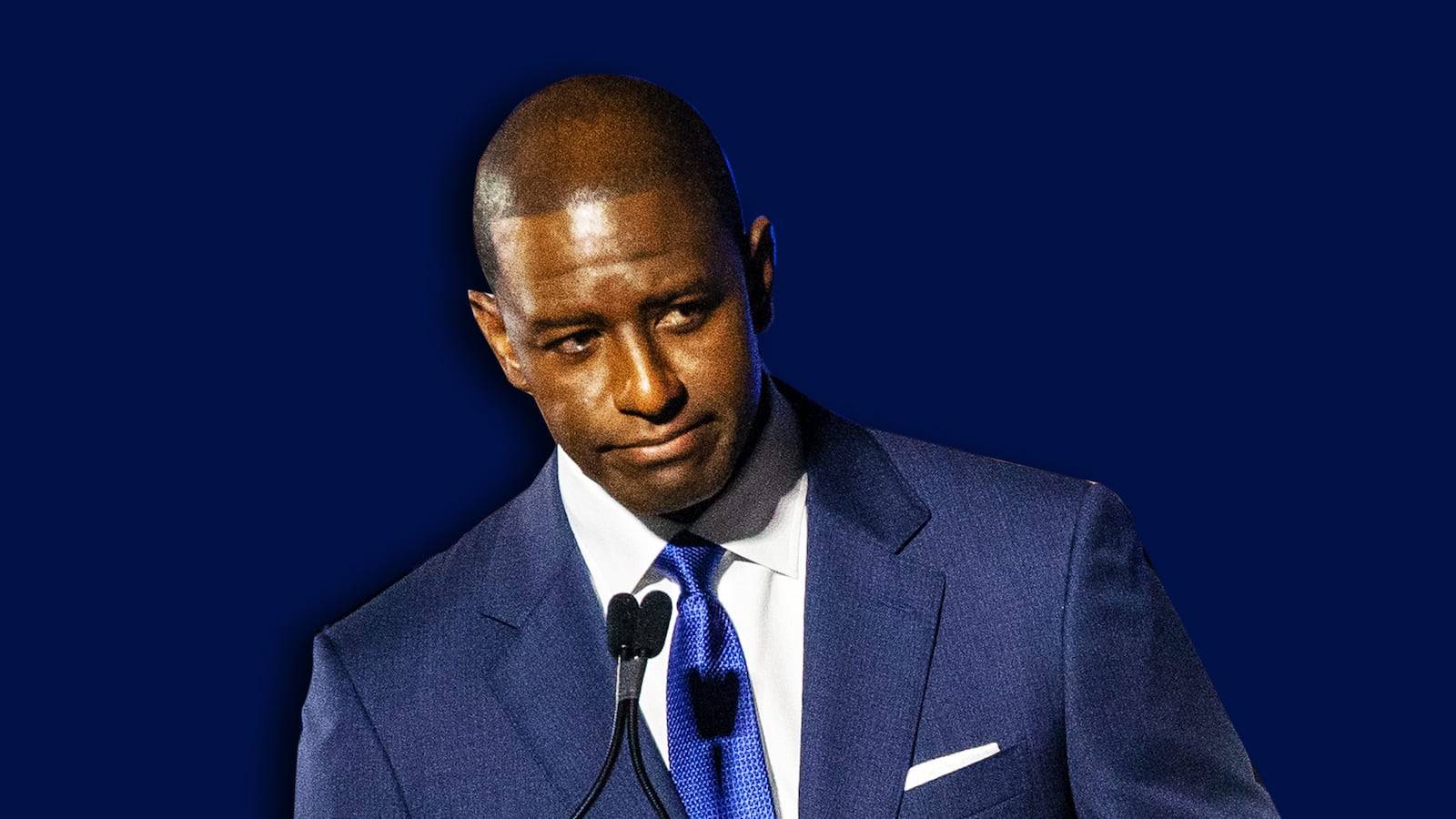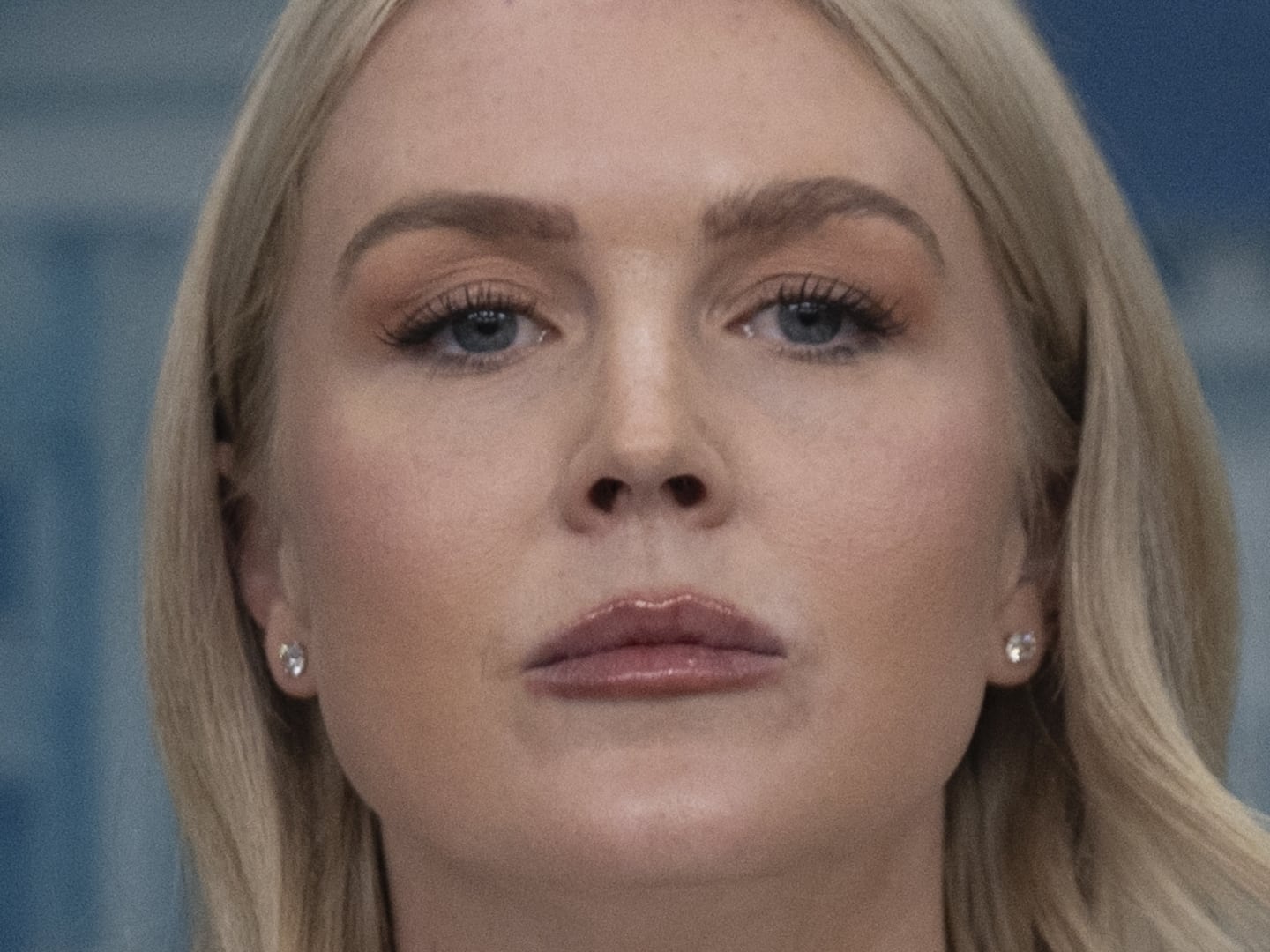TALLAHASSEE, Florida—They showed up to the campus of Florida A&M University expecting to celebrate the election of Florida’s first African-American governor.
Instead, the crowd that formed here for Andrew Gillum’s election-night celebration watched the collapse of a Democratic party that failed to notch a single statewide victory in a state that, in just two years, Democrats will need to flip blue in order to defeat President Donald Trump.
“This election further highlighted the Florida Democratic Party’s place as the most incompetent political organization in the country,” said a Republican strategist who worked on one of Tuesday’s winning campaigns. “They now have no statewide elected officials in Florida. That’s going to have an impact.”
And despite Gillum’s positive and forward-looking message to his supporters here late Tuesday night, some of them—especially those infrequent voters whom Gillum convinced to head to the polls this year—immediately reverted to feelings of dejection.
“My confidence [is] gone. I probably won’t vote,” Al Wilkerson, a Tallahassee resident who voted this year because of Gillum, said bluntly.
Others struck a more optimistic tone. But it was difficult for them to accept the fact that Gillum—who gained national attention through his Obama-like voter coalition—would not make history this cycle as Florida’s first black governor.
“The fact that it was as close as it was, to me, gives hope,” said Joreatha Capers, a 74-year-old pastor who drove from Bradenton to Tallahassee for Gillum’s election-night event because she wanted to witness what she believed would be a historic election.
As MSNBC’s election coverage was blaring throughout the quad at Florida A&M, a few speakers walked on stage to keep the crowd jovial and confident. But by 9:30 p.m., those efforts were futile. As the stage remained vacant for more than an hour, members of the audience began trickling out of the event, while others became visibly frustrated as they stared at their cell phones for real-time election returns. Florida A&M students were lined up against the barriers separating the media from the public spaces, their arms hanging over the edges in disbelief.
In the end, Republican Ron DeSantis defeated Gillum by one percentage point. Gillum took the stage to a modest crowd that was fixated on a trio of jumbotrons that were better suited for a block party. He announced just before 11 p.m. that he had officially conceded to DeSantis.
“We didn’t win it tonight. We didn’t win this transaction,” Gillum said. “But I want you all to know, that is just it: a transaction. That what we believe in still holds true today.”
Gillum’s loss was compounded by the fact that the entire statewide Democratic ticket—cabinet-level positions including attorney general, agriculture commissioner, and chief financial officer—lost to the Republican candidates. The state’s legislature also remained in Republican control.
To make matters worse for Democrats, Sen. Bill Nelson (D-FL), currently the only statewide elected Democrat, appeared headed for a loss himself. His opponent, Florida Gov. Rick Scott (R), declared victory, though Nelson did not concede on Tuesday night and was expected to speak later Wednesday. As of early Wednesday morning, Scott was ahead by 0.8 percent with 99 percent of precincts reporting. An automatic recount is triggered if the margin is 0.5 percent or less.
Gillum campaigned on a progressive and anti-Trump platform. That his strategy wasn’t successful in a statewide campaign bodes poorly for Democrats in 2020 and beyond. Barack Obama won Florida in 2008 and 2012, but Trump clawed it back in 2016. Republicans were celebrating Tuesday’s victories not just for the candidates, but because they acknowledged that they would have had a much more difficult time carrying the state in 2020 if Gillum and the rest of his Democratic ticket had swept into power. Trump visited Florida twice in the final week of the 2018 campaign to boost both DeSantis and Scott, a strategy that paid off greatly.
Former Rep. Jim Davis (D-FL) attributed the statewide losses to lower than expected turnout in key Democratic strongholds including Miami-Dade County, Broward County, and Palm Beach County. He said that while Tuesday’s results were a setback, Democrats could still be successful in 2020.
“A lot of these folks come from other states. And so they don’t feel as attached to Florida as we’d like them to. But they certainly feel attached to who the president of the United States is,” Davis told The Daily Beast. But he cautioned: “Florida is getting more purple. It’s constantly changing.”
There were some bright spots for the Florida Democratic ticket, though. Donna Shalala and Debbie Mucarsel-Powell flipped Republican-held seats in the Miami area, pickups that were crucial for the Democrats’ takeover of the U.S. House of Representatives.
Moreover, voters on Tuesday approved Amendment 4, a ballot initiative which restores voting rights to around 1.5 million Floridians with felony convictions. Democrats pushed for Amendment 4 as part of their pitches to voters, while Republican candidates said they opposed it but did not actively campaign against it. The measure received 64 percent of the vote, well above the 60 percent it needed for passage.
Although academic studies have reached different conclusions about the voting tendencies of the re-enfranchised population in Florida, Democrats say they are already planning to aggressively court this group and encourage them to exercise their voting rights.
“I think if we can sway a majority of those folks to vote Democratic, we have a better chance,” said Nigel Lascelles, who attended Gillum’s election-night event.
“So it will be a level playing field. Just got to keep it moving and stay positive.”






